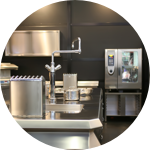Selecting restaurant suppliers
A restaurant can’t function without food and your supplier selection says as much about your restaurant as the way you prepare and serve dishes.
There’s a growing trend towards sustainability and locally sourced produce, but a farm-to-table concept isn’t practical for every restaurant business or every purchase you need to make. The important thing is that you have the right restaurant suppliers for the right items, both in terms of cost and reliability.
Affordability versus quality
During your search for the right restaurant suppliers, you’re going to face a constant battle between the things you want, and the things you can afford. While you can always bump up your prices to cover certain extra costs, it’s essential that you stick to a plan and go with ingredients that will deliver a healthy profit margin.
It’s worth considering that your suppliers will have their own suppliers, too, and their costs will be constantly fluctuating, creating a ripple through the supply chain.
Seasonality has a major impact on food production, and a bad patch of weather can affect costs for many months.
A considerable amount of fuel is used in both food production and transportation, so global oil prices may also affect you.
Taxes and levies can rise (or occasionally fall) without much notice. This is especially true with any imported goods.
Build trust with suppliers early
You’d think that every supplier would be more than happy to have you as a customer, but every young business has the liability of newness. Suppliers need to know they’ll be paid on time, and you’ve yet to earn any credibility (or credit).
This works the other way around too. The artisan bakery you had helping you out for the test pop-up may be out of this world, but can they keep up with the demand for daily deliveries? You don’t want to have to cross out items on your menu on your busiest night because someone let you down.
Choose suppliers who match both your brand values and your personality. There are always going to be some frank conversations you need to have with people in your restaurant supply chain and you want to know you’re dealing with people who you’re comfortable conversing with.
Some important questions to ask include:
What are their usual delivery routines?
What health and safety policies do they have?
Do they have any industry awards?
Who else do they supply?
What is their staff turnover like?
What are their payment terms?
What is the minimum order?
What discounts can be offered for bulk orders?
While they’re still just numbers on a spreadsheet, don’t be hesitant to share your business plan with your suppliers. Suppliers form an essential cog in the machine and showing them where they fit in demonstrates that your figures are based on more than pure guesswork.
The price and portion guides for the entire menu should be costed out, with detailed information on what needs to be ordered when to keep up with the expected footfall. Their experience in the business may also benefit you as you discuss your ramp up.
What else does a restaurant need?
It’s not just food you need to worry about. Everything from your furniture to the company that delivers your stationery needs to be in tune so you can run an efficient operation.
Some will be one-off purchases, some will need to come in daily, but all need to be considered when working out your budget.

Kitchen
Cooking equipment, storage, and all the cooking utensils your team needs to craft dishes.

Service
Cutlery, plates, napkins, tablecloths, and glasses of all shapes and sizes.

Bar
Various containers, swizzle sticks, cutting boards, and garnishes.

Front of House
An effective POS system, host stand, menus, and furnishings.
And don’t forget the cleaning products and toilet paper!
How to choose the best restaurant suppliers
Recognize the total value of your restaurant suppliers and connections that benefit your business.
Tips for working with restaurant suppliers
Narrow down the choices and find the right fit.
Growing a restaurant profit margin
How to control your costs and improve cash flow.
Rewards Network® does not provide tax, legal, or accounting advice. This material has been prepared for informational purposes only, and is not intended to provide, and should not be relied on for tax, legal, or accounting advice. You should consult your own tax, legal, and accounting advisors before engaging in any transaction.





